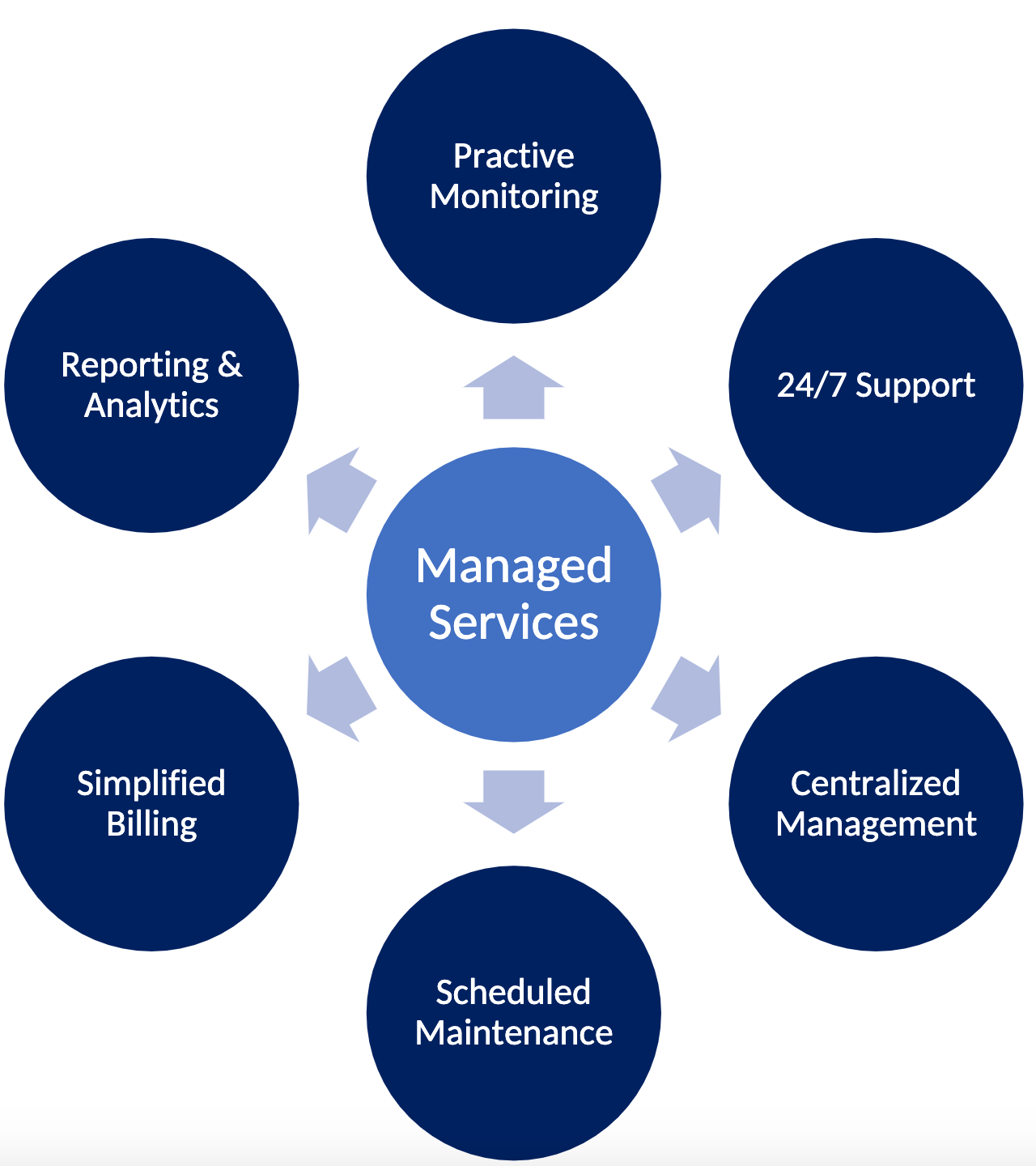Managed Services is the practice of outsourcing the responsibility of maintaining and anticipating the need of functions and resources to improve operations and cut expenses. This is usually contracted in a subscription model, where the client and the MSP define contractually service level agreements (SLAs) that indicate the quality of metrics of their relationship.
This delivery model is ideal for organizations that look beyond traditional outsourcing criteria to get long-term benefits expected from the solutions provider. The Managed Services model allows SMBs to outsource the management, operations, and delivery of processes effectively and reduces costs.
- 24/7 on-demand support. The MSP is responsible to support the client’s IT needs at any time. This is a common requirement for companies who run their business online or globally. Some modern MSPs provide real-time communication with their clients via instant messaging communication tools and other channels.
- Cost-effective. The price for an MSP offering is usually a fraction of the costs of dedicated resources. This frees up more budget for other areas and allows organizations to focus on their core business instead of their IT needs. Startups, small, and medium business will benefit from the MSP offerings since the billing consolidation and subscription model pricing can help to allocate a fix cost of the services, thus facilitating the budget allocation and streamline expenses.
- Simplified IT expense and billing. Most of the MSP packages cover all the IT needs of your business. Startups, small, and medium sized businesses benefit from the MSP offerings since the billing consolidation and subscription model pricing help allocate a fixed cost for the services, thus facilitating budget allocation and streamlining expenses.
- Highly qualified and experienced MSP staff. Good MSPs continuously invest in the development of the skills and training of their personnel. This model provides access to a full team of technology experts with a variety of skills and certifications.
- Proactive IT monitoring and management. One important characteristic of the MSP offering is that infrastructure capacity as well as service scaling and availability are taken care of proactively, reducing the number of service outages substantially. A robust MSP provides a more holistic monitoring approach. The main areas are network monitoring, IT infrastructure monitoring, and application monitoring.
- Software updates and patches. These tasks are also proactively executed. Moreover, as technology advances, an MSP will help you stay up to date. Installing updates and patches is also a crucial task to address security vulnerabilities.
- On-premise, multi-hosting, and multi-Cloud support. Startups use cloud-based technologies as their main strategy to build and host their software solutions, receiving the immediate benefits like pay-as-you-go pricing and elasticity, among others. More traditional small and medium businesses opt in for more conservative options like on-premise hosting, owning the datacenter, or multi-hosting, having their software and applications with different hosting providers. More complex scenarios are hybrid hosting topologies that combine on-premises or other hosting providers with one or more Cloud platforms.Multi-Cloud solutions are popular as well, a good example is to have SaaS products like Salesforce integrated with Active Directory in Azure for user access that feeds a data lake in AWS. An MSP can manage access and perform user onboarding tasks to different Clouds and manage platforms like the AWS, Azure, and Google cloud at the same time.
- Disaster Recovery optimization and execution. Data backups and restoration are common MSP practices. In addition, some MSP can help put together a solid recovery plan and perform periodic tests which are required for some standards and regulatory entities.
- IT Security Compliance. Data backups are stored securely, encrypted, and with role access policies. MSP personnel also are responsible for applying security patches, maintenance, log management, and network security best practices that facilitate IT security audit verifications.


